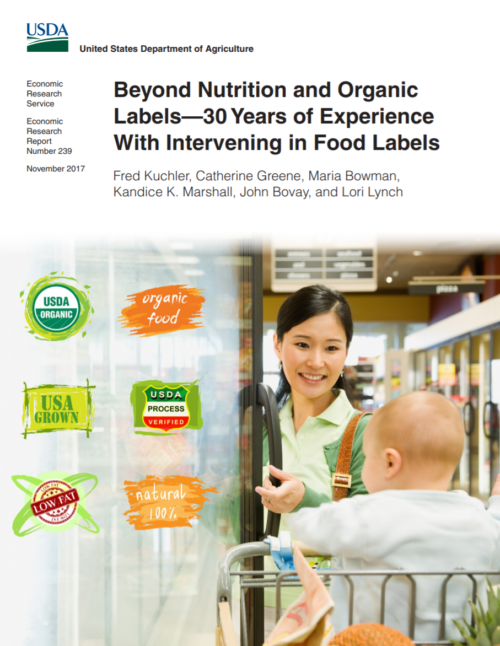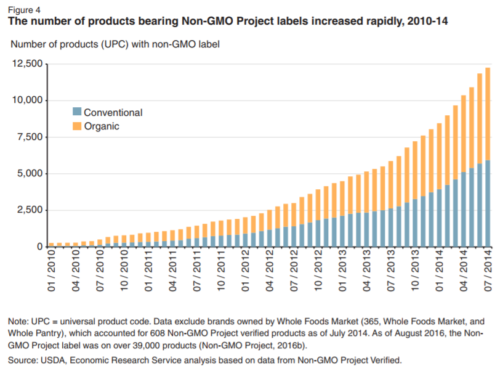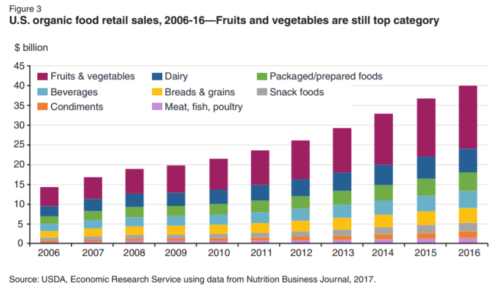USDA’s case studies on front-of-package labeling
The FDA is responsible for food labeling but in the peculiar way things get done in federal agencies, the USDA governs front-of-package labeling for organics and also gets involved in labels for non-GMO, no-antibiotics and those for country-of-origin.
It has just published a report on all this:

The report is a good place to learn about the labeling laws passed in 1990, and it has an interesting case study on GMO labeling:

It has a lot to say about organic labeling:

Do such labels influence what the public buys? Yes. (That’s what the USDA is worried about)
Does the public understand what the labels mean? Not really. (The USDA worries about this too)
The USDA derives many conclusions from this study, but boils them down to this statement:
There are fundamental tradeoffs in how information is presented to consumers. If it is presented simply, then important nuance or complexity may be missed. On the other hand, if standards and labels attempt to convey complexity, then consumers may just be confused. Policymakers and marketers will need to consider these tradeoffs in the future when developing new process-based labels.
What the USDA does not discuss is the fundamental issue behind fights over food labels. They work well to discourage people from buying products that may not be good for them or do not meet their values. That’s why the food industry opposes them so strongly.

